We all know that daily practices are important. But I’m not sure we fully realize the depth of their importance or even the core reasons those core practices make a difference. As with most things, when we understand the underlying reasons, the doing gets much easier.
That’s where stories can help.
One of the first stories that comes to mind for me is about John Constable, a British 19th-century painter known for his landscape paintings. He believed that the key element for mastery in all of his work was being able to capture the drama of the sky. He was fascinated with the sky, and in particular, clouds, because that’s where he found the drama. He was determined to become beyond proficient at capturing the beauty and essence of the ever-changing sky.
So, how did he achieve that mastery? He started a daily practice. He found one spot by a river where he could go every single day and paint. He would show up there each day and paint the sky as it appeared that day. He did that every single day. He never relented because he knew that the better he got at painting the sky, the better all of his work would be. And he also knew that the sky would be different every day – thus giving him the chance to keep honing that skill. That’s the essence of a daily practice. It isn’t just about what you are doing. It’s about how it integrates into everything else.
When we look at other artists, we can find many stories like this. I am a fan of the cellist Yo-Yo Ma. I love the instrument, and I love the way he loves it as well. His music is something that can transport me from wherever I am to someplace that is lovely, centered, and full of hope. How does he do that? You might say it’s because he is talented, and no doubt that is part of it. But if you asked him, he would say it is because he is dedicated to his craft, and even now, with all of the success and accolades, the most essential part of his day is his practice time. He is not doing that for perfection. He is doing that for a deeper connection to his instrument, the music, and the world.
The discipline of daily practice is something I have never outgrown. It allows me to keep discovering new things about music and about myself.” ~Yo Yo Ma
One of my nieces is a ballerina. She’s still young, but it’s already clear that this is more than just a weekly dance class for her. How? She practices every day. No one has to tell her. She has created a place in her bedroom dedicated to practicing dance. While other kids are watching videos and playing games, she is immersed in her world of dance.
That’s how you know something matters. And she’s in good company. Every prima ballerina out there will tell you the same thing. They are in class every day. They dance every day. It’s how they are instinctual and fluid not only on the stage, but in every one of their movements in life.
“The one thing that has gotten me through every single moment of my life, whether I was going through a tough time or was the happiest I’d ever been, was my discipline and my training. It’s that consistency.” ~ Misty Copeland
There are many other examples from just about every craft you can imagine.
I think we can all agree that when it comes to athletes, none set a better example of perfecting their craft than Kobe Bryant. He attributed all of his success to his “Mamba Mentality,” and the cornerstone of that was his daily practice.
He was committed, some might even say obsessed, with the fundamentals of his craft, and he practiced every single day. He was known for being up and at the gym hours before any of his teammates. What is interesting about his example is that not only did that daily practice raise him above his peers in his execution of the game, but it also raised him to a position of influence.
He inspired many of his teammates and even competitors to greater heights. That’s why one of the other greats, Michael Jordan, was willing to take him on as a protege even though they were also competitors. People admire others who are relentless about improvement and mastery.
“The key to success is failure. Each time I fail, I learn something, and I become better. Practice is where I put those lessons into action.” ~Michael Jordan
As a writer, I know that daily practice is an absolute. The key to me has always been to understand that vs. pushing against it. I attended a conference once where the keynote speaker had the topic of “how to create a daily writing practice.” When he got to the stage to speak, he said that his presentation was likely to be a surprise and it would, no doubt, be the shortest of the day because the subject matter was so simple.
He said that the way to create a daily writing practice was simple. You write. Every day. That’s it. Nothing else. If you want to be a writer, you are going to need to write every day. That means nothing more or nothing less than just that. Write every single day.
“Writing is, in effect, not so different from endurance sport. To keep writing, one has to keep up the rhythm and create the habits that allow words to flow.” ~Haruki Murakami
But you might say there is more to it than that. I understand. I did as well until I realized that part of making the decision about what matters to us is making the commitment to doing what it takes to achieve it. We want the results, but too often, we want to short-cut or short-circuit the pathway to them. And it only derails us. Sometimes, shortcuts add to the journey rather than compressing it.
Whatever you want, I promise you that a daily practice is necessary to achieving it. So when you define what you want, go that extra step and ask yourself what you will need to do every day to make that happen. And then turn your eyes to that.
You will be amazed at how focusing on the commitment vs. the prize, how much more the prize will mean, and how much deeper its value will become. It takes the time it takes.
It’s not always 10,000 hours. That framework doesn’t fit everything, as some would want us to believe. But it does take something. And, more than anything, it takes consistent time, even if not as much time.
One of my favorite things to do is to create acronyms from words that I find important. This helps me understand them more proactively and aids in teaching the principles around them. I found that to be true here as well.
I want to share with you the acronym I created for PRACTICE.
After going through each letter and associated word, ask yourself which of these words or ideas surprised you most. Maybe that is the missing link to help boost your own commitment to the daily practice you need most in this season of your life.

P – PURPOSE. Anything we commit to daily must serve a bigger purpose. We don’t do anything in a vacuum. I heard a quote once that said you can’t play Bach without having done scales, but that no one practices scales merely to play a scale. Indeed, as a musician myself, I know that no one masters music without first mastering the scale.
R – RHYTHM. There is a cadence to anything that moves us forward. Think about music. Far more than just the notes – it is the pauses and the rhythm that make it memorable. Daily practices will create a rhythm within our day. It creates that synchronicity that pulls everything together.
A – ACCOUNTABILITY. Nearly every program out there that is designed to help us define and achieve goals has an accountability practice as one of its cornerstones. But I believe that our practice is in and of itself an internal instrument of accountability. We now have a daily standard we hold ourselves to.
C – CONSISTENCY. If you’ve ever attended any teaching or presentation on just about anything related to any success, they have emphasized the need for consistency in your actions. You don’t get healthy or fit by exercising once in a while. That’s the value of an exercise practice. It automatically creates consistency, which exponentially increases the rate and velocity of your success.
T – TIME. Have you ever had something you wanted to do and yet hid behind the excuse that there just wasn’t enough time? I certainly have. This might be the most essential element of a daily practice. It shows us that we DO have time. And taking time does something else. It creates time. When we are more disciplined about how we spend our time, there is more of it because we’ve defined it based on our priorities.
I – INTENTIONALITY. This brings us to intentionality. It is something that precedes those benefits of time but is, in fact, its own benefit marker. Time is a limited resource. It is, in fact, our only limited resource. So how we spend it matters more than anything other resource we consume. Having those daily practices is a form of declaration about what matters to us. No one lives an intentional life without living an intentional day.
C – CREATIVITY. This is another one that many miss. How can something that, by its nature, is regimented inspire or spark creativity? Because it does. Some things you can’t explain, but I know this is true. When we eliminate some of our decision fatigue, we free up mental resources that are part of our creative process. As we get better at our craft, we are able to see things from a different perspective and dare to try new things. My daily writing practice is, by far, the most creative time of my day. My commonplace book gets idea entries all the time that were spawned in a writing session.
E – EFFICACY. Does this surprise you? It shouldn’t. Self-efficacy, or any other way of seeing our abilities, is paramount for living our best life and doing our best work. When we believe we hold within us the power and ability to do whatever it is we set our minds to, it is almost a given that it will happen. A daily practice allows that because it moves us through times we might have otherwise given up and not stayed the course. It helps to reinforce what we CAN do vs. anything else that might be messages coming our way.
So there you have it—my latest acronym. I hope that it brought you some value.
And, by the way, it came out of one of my writing sessions in my daily writing practice!


